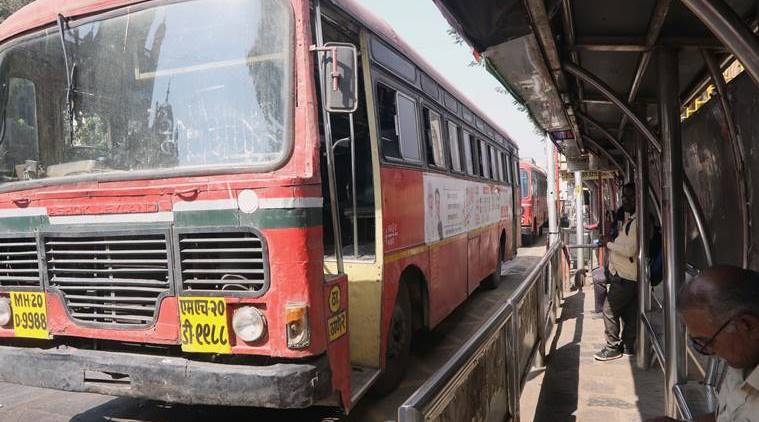Stay updated with the latest - Click here to follow us on Instagram
Don’t restrict BEST as feeder service to make other modes of transport a success: Activists to BMC
The letter, signed by 54 activists, urged the commissioner to not restrict BEST as feeder service to make a “success” of other modes such as Metros by ignoring the civic transport provider’s role in connecting areas not connected by a rail system.
 They urged BEST to restart services on 90 long routes that have been cancelled after they were reportedly found to be making heavy losses.
They urged BEST to restart services on 90 long routes that have been cancelled after they were reportedly found to be making heavy losses.
Opposing the Brihanmumbai Electric Supply and Transport (BEST) undertakings’ plan to restructure bus routes as feeder services to the upcoming Metro, monorail and railway corridors, activist and citizens submitted Tuesday an open letter to Municipal Commissioner Praveen Pardeshi.
The letter, signed by 54 activists, urged the commissioner to not restrict BEST as feeder service to make a “success” of other modes such as Metros by ignoring the civic transport provider’s role in connecting areas not connected by a rail system. They urged BEST to restart services on 90 long routes that have been cancelled after they were reportedly found to be making heavy losses.
The activists, under an independent citizens’ forum, Aamchi Mumbai Aamchi BEST (AMAB), also urged the civic transport provider to run additional long route services, which can act as an alternative to the existing railway and Metro corridors.
The newly hired midi- and mini-buses on wet-leasing, the activists said, could be operated as feeder services, while the fleet of 3,337 BEST-owned buses should be run on longer routes. With their reduced fares, the public buses would be the most cost-efficient mode of transport as compared to Metros, they said. While BEST bus fare is Rs 1 per km, Mumbai Metro-1 and Delhi Metro fares per kilometre are around Rs 3.50 and Rs 2.40, respectively.
The AMAB also released a report of ‘Jan Sunwai’ (public hearing) held on March 1, which found that about eight lakh people living in M (east) and M (west) wards, who have lowest human development indicator, are ill-served by BEST. “Lakhs of residents from Shivaji Nagar, Sanjay Nagar, Miraj Nagar, Rafiq Nagar have no other alternative as bus route number 318 has been stopped,” Anjum Bi, a resident of the area, said.
The report urged that BEST buses should be allowed on all road projects such as Sea Link, Eastern Freeway and all flyovers.
Vidyadhar Date, convenor of AMAB, said, “A city like London, which has one of the oldest Metro networks, also has a very robust bus network, which is available even late in the night.” The activist raised doubts over the cost-effectiveness of the wet-leasing model being adopted by BEST. According to an analysis of Research Unit of Political Economy, he said, the cost incurred by BEST on operating buses on wet-leasing will be 19 per cent higher as compared to running buses owned by them.







